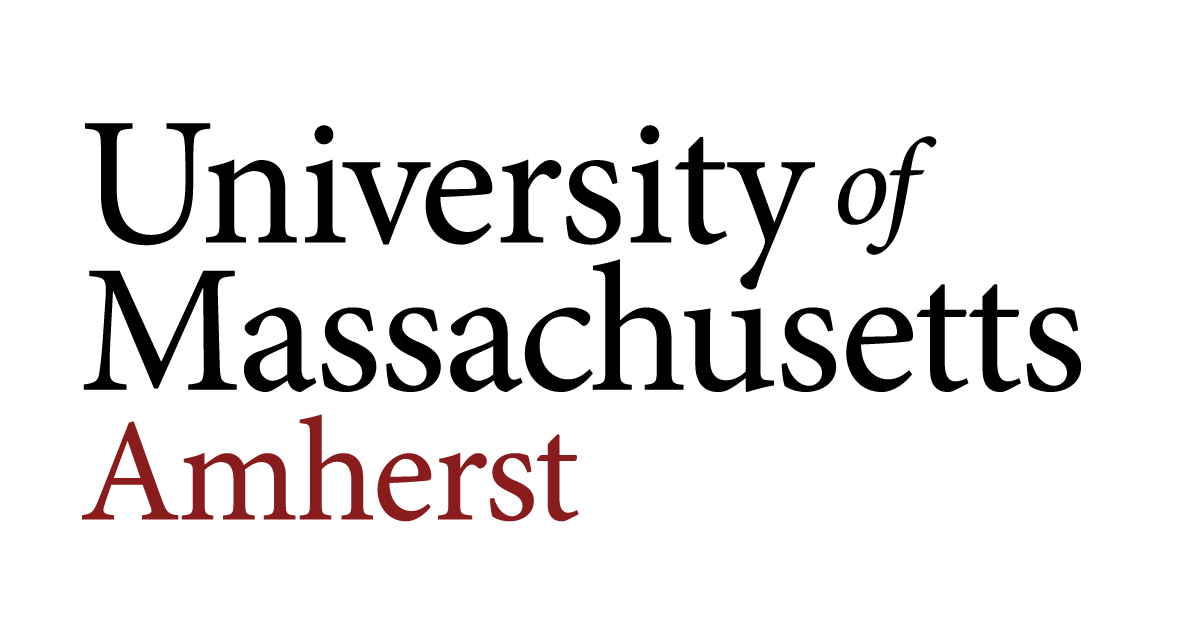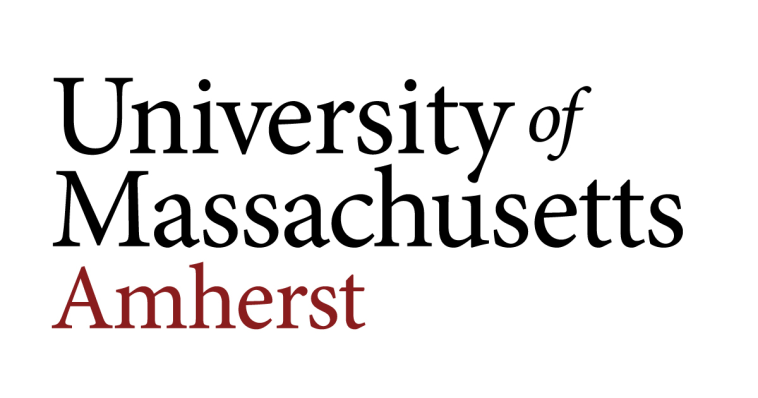
Embracing Excellence: UMass Amherst’s Fall 2025 Research Administration Training Program
The University of Massachusetts Amherst is once again setting a new standard in higher education by rolling out an extensive Fall 2025 Research Administration Core Training Program. In an era where managing research investments can often feel like navigating a maze filled with tricky parts and tangled issues, UMass is stepping up with a curriculum designed to help both new staff and seasoned faculty find their way through the confusing bits of research administration.
This initiative is not only about best practices; it is about building a community of research professionals who can confidently tackle the subtle parts of proposal development, award management, and financial oversight. As we take a closer look at this program, it’s clear that the training offers more than just technical detail—it is a call for a cultural shift in how research is managed and supported in higher education.
Why a Focus on Research Administration Training Matters
In today’s academic landscape, research administration is a field full of problems that can easily overwhelm even the most determined professionals. The twists and turns of compliance policies, budget planning, and submission protocols require more than a cursory understanding. Professionals working in this area often face intimidating challenges that can be off-putting if tackled without proper guidance. Recognizing this, UMass Amherst is making this program super important for ensuring that the university’s research ecosystem remains robust, compliant, and innovative.
This training is especially key for administrators and faculty who find themselves needing to figure a path through the maze of federal and state education policies. Getting into the nitty-gritty of these issues not only bolsters personal career growth but also enhances the university’s reputation as a research powerhouse committed to excellence and compliance.
Comprehensive Curriculum: Building a Holistic Framework for Success
UMass Amherst’s program is segmented into six core modules and several supplementary sessions that together provide a complete tour of research administration. Each module is designed to address specific areas of responsibility and to simplify the many complicated pieces of the research process.
Understanding the Orientation and Fundamentals
Core 1—Orientation and Fundamentals of Research Administration—sets the stage for what participants should expect. This introductory module is crafted to help new staff and faculty get comfortable with the administrative landscape. By providing a solid foundation, it ensures participants are well-equipped to build on their knowledge in later sessions.
In this segment, instructors cover:
- Basic principles of research administration
- Key policies and compliance requirements
- The importance of ethics in research management
For many, the process of getting acquainted with the fine points of these procedures can be nerve-racking. However, by facing these little details head on, participants can reduce feelings of overwhelm and build confidence in their everyday roles.
Streamlining Proposal Submission and Budgeting Processes
Core 2—Proposal Submission and Budgeting—focuses on the tricky parts of putting together successful proposals and managing budgets. In many ways, this component is like learning to steer through a storm; the system may seem confusing at first, but with proper guidance, the process becomes much clearer.
This segment is particularly helpful for those who have to figure a path through:
- Understanding the format and requirements for proposals
- Budgeting practices that align with funding agency guidelines
- Identifying hidden complexities in cost estimations
Using real-world examples, the training provides participants with step-by-step instructions on how to manage the small distinctions between different types of research budgets, ensuring that every proposal meets federal and state standards with minimal frustration.
Mastering Proposal Development Methods and Tools
Core 3 dedicates itself to Proposal Development Methods and Tools. Here, participants are encouraged to dive in and get into the techniques that can enhance the quality and competitiveness of research proposals. This session isn’t just about writing proposals; it’s about refining them to reflect the innovative spirit of UMass Amherst.
Participants will receive hands-on demonstrations that cover:
- The use of advanced software tools for proposal writing
- Techniques for collaborative proposal development
- Strategies for overcoming common proposal pitfalls
The aim is to demystify the process by breaking it down into digestible, manageable parts. This practical approach makes what might have been seen as overwhelming much more accessible, ensuring that research proposals are both competitive and compliant.
Excelling in Award Management, Acceptance, and Negotiation
Core 4—Award Management, Acceptance, and Negotiation—deals with the subsequent phase of the research process. Securing funding is only half the battle; managing the award and ensuring compliance after acceptance are equally important. This module teaches professionals how to deal with these delicate issues step by step, making the fine points of managing grants and awards approachable.
This module includes sessions on:
- Understanding the terms and conditions of research awards
- Negotiating with funding agencies
- Best practices in post-award administration
By focusing on these subtle parts, the training helps staff and faculty mitigate risks and avoid potential pitfalls that are often loaded with issues if not handled properly.
Deep Dive into Financial Research Administration
Core 5 focuses on Financial Research Administration from the Controller’s Office perspective. Financial management is a crucial element of research administration, and this course demystifies the not-so-obvious aspects of post-award financial oversight. The session aims to ensure that department administrators are comfortable with the budget adjustments and reporting requirements that accompany large research grants.
Key takeaways from this core include:
| Topic | Description |
|---|---|
| Budget Reconciliation | Methods to align expenditures with approved budgets |
| Financial Accountability | Ensuring proper use of funds in compliance with guidelines |
| Reporting Standards | Tools and techniques for accurate and up-to-date reporting |
By slicing through the nerve-racking details, the session offers practical insights into how financial processes can remain transparent and manageable, even when the regulations seem intimidating at first glance.
Enhancing Post Award Management with SUMMIT Financials
Core 6 is centered on SUMMIT Financials for Departmental Post Award Management. This segment builds on earlier financial sessions by focusing on specific in-house systems that streamline post-award administration. Learning to make your way through these tools is essential for ensuring that every department maintains a clear and updated picture of its financial status.
Highlights of this segment include:
- Hands-on training with the SUMMIT Financials system
- Best practices for post-award cost tracking
- Understanding the nuances of financial compliance across departments
Overall, the training helps participants overcome the intimidating aspects of departmental financial management, as they learn to use technology to reduce complications and increase accuracy.
Supplementary Sessions: Expanding the Research Administration Horizon
In addition to the six core modules, UMass Amherst is offering a series of supplementary training sessions designed to round out the research administration experience. These extra sessions target specific challenges that researchers and administrators might face, providing tips on shipping, cost transfers, and navigating complex software systems.
Streamlined Shipping Solutions with the PRO Series
The PRO Series session titled “Shipping at UMass: Your Guide to Using Mail Services, Distribution Services, and eShip Global” aims to tackle the often confusing bits related to shipping and distribution. Many research projects require the shipment of sensitive equipment, samples, and documents, and proper compliance with regulatory requirements is critical.
This session offers clear instructions on how to:
- Utilize internal mail and distribution services efficiently
- Understand the compliance hurdles related to shipping research items
- Work with eShip Global to streamline shipments and ensure regulatory adherence
This segment is particularly useful for those who might find the cost and logistics of shipping to be overwhelming due to numerous little twists in shipping protocols. By breaking down each element, the training session ensures that every participant understands how to ship effectively while meeting all necessary requirements.
Simplifying Cost Transfers and Leveraging Kuali Systems
An integral component of the research administration training is understanding how to manage cost transfers effectively. The session titled Cost Transfers 101 from the Controller’s Office is designed to guide participants through the nerve-racking aspects of moving funds between budgets. This practical training is aimed at demystifying the often tangled issues that can arise when funds need to be reallocated.
Following the cost transfers session are three pivotal Kuali sessions:
- Kuali Session 1: Basics – Introducing users to the foundational aspects of the Kuali system.
- Kuali Session 2: Budgeting – Focusing on the application of budgeting principles within the Kuali platform.
- Kuali Session 3: Advanced Budgeting – Taking a closer look at complex budgeting scenarios and the S2S (system-to-system) registration process.
Each session is structured to help participants work through the subtle details of budget management in a system that can seem intimidating at first. By breaking it down into basic and advanced parts, the training ensures that both novices and experts can find something useful to enhance their skills.
Bridging Policy and Practice in Research Administration
One of the most compelling aspects of this training program is its commitment to aligning policy with practice. Research administration is not just about ticking boxes for compliance—it’s about understanding the full spectrum of federal and state education policies and incorporating these into everyday practice.
UMass Amherst has taken a stand by integrating insights from federal actions, strategic plans, and recently released guidelines into the training curriculum. This ensures that every participant is updated with the latest advances and expectations in the world of research administration. By relating these policies to day-to-day operations, the program fosters an environment where academic professionals feel ready to take the wheel in managing their research projects.
A few critical policy areas covered in the program include:
- Compliance requirements from federal research agencies
- Understanding the roles of state oversight in higher education research
- Strategies for adapting to new regulations while maintaining productivity
By integrating policy details with practical training, UMass Amherst is providing a roadmap that is both comprehensive and easy to understand. This approach not only simplifies the process for individual departments but also positions the university as a leader in research administration training.
Real-World Impacts: Benefits for Faculty, Staff, and Students
The benefits of such a comprehensive training program extend far beyond administrative efficiency; they are transformative for research culture as a whole. By offering a clear path through both the tricky parts and the confusing bits of research management, faculty and staff can focus more on the innovative aspects of their work.
Notable benefits include:
- Enhanced Productivity: With clear guidelines and tools at their disposal, administrators can focus less on compliance puzzles and more on supporting groundbreaking research.
- Improved Collaboration: A shared training framework helps bridge communication gaps between administrative staff and research faculty, leading to more coordinated efforts.
- Stronger Compliance: By understanding the subtle details behind each process, participants can ensure that their work aligns with both state and federal regulations, reducing risks and increasing overall efficiency.
- Increased Innovation: With the burden of administrative twists and turns reduced, researchers are free to channel their energies directly into creative and entrepreneurial projects.
In many ways, this training program is a microcosm of the broader trends in higher education—where innovation and administration must coexist harmoniously. It reflects a recognition that infrastructure and talent go hand in hand in driving academic success.
Using Technology to Tackle Tricky Parts of Research Administration
Technology plays a critical role in modern research administration. Tools like SUMMIT Financials and the Kuali system have revolutionized the way departments manage post-award processes and budget tracking. However, for many users, the little twists in these systems can feel daunting. The training program at UMass Amherst is designed to help participants make their way through these platforms with confidence.
Key technological highlights include:
- User-friendly interfaces: Modern software is designed to simplify processes that were once mired in complicated pieces of paperwork and manual calculations.
- Real-time reporting: Advanced dashboards provide live updates on budget statuses, grant expenditures, and compliance milestones.
- Integrated support: With dedicated sessions on tools like Kuali, users receive hands-on instruction that demystifies the fine points of digital financial management.
By embracing these technologies and coupling them with rigorous training, UMass Amherst is ensuring that its research administration processes remain both agile and precise. This focus on technological empowerment serves as a model for other institutions looking to modernize their own administrative frameworks.
Creating a Culture of Continuous Learning and Improvement
A crucial underlying principle of the Fall 2025 Research Administration Training Program is the belief that continuous improvement is key to academic excellence. As the research environment evolves rapidly in response to policy changes and budgetary challenges, ongoing training becomes a must-have for any ambitious institution.
By fostering a culture where every staff member is encouraged to learn and adapt, UMass Amherst is setting a high standard. The institute understands that maintaining proficiency in the little details of research management helps the whole community grow stronger. This dynamic emphasis on lifelong learning underscores the program’s commitment to not only addressing today’s challenges but also preparing for tomorrow’s opportunities.
Participants are encouraged to:
- Regularly review updated training modules to stay informed of current practices
- Engage in peer discussions to share practical tips and tricks for managing research funds
- Take advantage of available recorded sessions and supplementary materials provided on the Office of Research and Engagement website
This ongoing dialogue among peers and mentors helps to foster an environment that is both collaborative and forward-thinking, ensuring that the research administration team is well-prepared for any challenge that comes their way.
Practical Steps for Departments to Maximize the Training Program
For academic departments considering how to integrate this comprehensive training into their everyday operations, several practical steps can be taken to ensure that the benefits are maximized. At its core, this program is designed to help departments get around the nerve-racking aspects of managing research funds and proposals.
Departments should consider adopting the following strategies:
- Identify Key Stakeholders: Ensure that all staff involved in research administration—whether they are new to the process or seasoned experts—are encouraged to participate.
- Synchronize Schedules: Coordinate training sessions with departmental meetings so that key topics can be discussed in context and applied immediately.
- Create a Resource Hub: Utilize online platforms such as the Workplace Learning and Development site to register for sessions, access recorded materials, and share insights from the training.
- Adopt a Mentorship Model: Pair experienced staff with new learners to guide them through the subtle details of research administration, helping them gain confidence as they work through the fine points of each session.
These measures are designed to reduce the intimidating nature of administrative processes and foster a culture where everyone feels they have the essential tools to succeed. By actively engaging with the training, departments can transform a task that once seemed overwhelming into an opportunity for professional development and enhanced team performance.
Addressing Challenges in Research Administration: A Balanced View
While the benefits of a robust research administration training program are many, it is important to acknowledge that integrating such a comprehensive curriculum presents its own set of challenges. For example, aligning the various sessions with the specific needs of multiple departments may raise practical questions about scheduling, resource allocation, and individual readiness.
Yet, these challenges are not insurmountable. With a proactive and collaborative approach, the administration can work through any tangled issues by:
- Collecting feedback from attendees during and after the sessions
- Continuously updating the curriculum based on practical experiences
- Establishing open lines of communication between the Training Program organizers and departmental leaders
- Utilizing performance metrics to review the impact of training on research output and compliance
This balanced view highlights that while the current environment may be loaded with issues, the program is strategically designed to empower participants to overcome each obstacle with a sense of purpose and proven tools at hand.
Fostering a Partnership Between Research and Administration
One of the most inspiring outcomes of this initiative is the strengthening of the partnership between research and administrative roles. Traditionally, these two realms have sometimes operated in separate silos, leading to missed opportunities for innovation and enhanced efficiency.
The training program bridges that gap by:
- Facilitating interdisciplinary dialogue between faculty researchers and administrative staff
- Highlighting the shared responsibility of safeguarding research integrity throughout every phase of a project
- Creating a common language that simplifies the little details of regulatory and financial compliance
This collaborative approach not only improves operational efficiency but also cultivates an environment where both research ideas and their implementation can thrive harmoniously. It demonstrates that when communication is prioritized and resources are shared, the overall impact on research projects is both significant and sustainable.
Looking Ahead: The Future of Research Administration Training
As UMass Amherst rolls out the Fall 2025 Research Administration Training Program, it sets a precedent for future training initiatives in the field. By tackling the minor twists in proposal development, budgeting, and financial oversight with a comprehensive curriculum, the program provides a model that other institutions may well emulate.
In looking ahead, several emerging trends are likely to influence the future of research administration:
- Increased Integration of Digital Tools: As technology continues to evolve, systems like SUMMIT Financials and Kuali will become even more central in managing research funds, demanding continuous training and adaptation.
- Evolving Regulatory Environments: With federal and state policies continuously in flux, administrators will need to find their way through a landscape that is as ever-changing as it is challenging.
- Collaborative Research Models: The increasing trend toward interdisciplinary research will require administrative systems that can support multiple departments and stakeholders seamlessly.
- Sustainable Funding Strategies: As research funding becomes more competitive, having a clear and strategic approach to both proposal development and post-award management will be key to achieving long-term success.
By anticipating these trends and aligning training content to meet future needs, UMass Amherst is not just addressing the present but also laying down a robust framework for the coming decades. The commitment to continuous improvement ensures that the institution remains at the forefront of research administration best practices, providing its community with the super important tools needed to succeed in an increasingly competitive landscape.
Final Thoughts: A Call for a Unified Commitment to Excellence
Ultimately, the Fall 2025 Research Administration Training Program at UMass Amherst is a testament to the university’s proactive stance on integrating policy with practice, innovation with regulation, and technology with training. By addressing every element—from the fundamental introduction to research administration through the subtle details associated with award management and digital tools—this program creates a well-rounded, practical roadmap for success.
As we reflect on the broader implications of such initiatives, it becomes clear that the time spent working through the nerve-racking aspects of research administration is an investment in the future of scholarly innovation and academic excellence. Every system and protocol perfected through this training is a step toward a more transparent, efficient, and supportive environment for research across all levels of the academic community.
In a period where both state and federal policies are continuously evolving, and where the demands on research administrators are more demanding than ever, UMass Amherst’s initiative underscores the importance of having a structured support system that helps professionals manage the fine points of their roles with confidence and precision.
For educators, administrators, and researchers alike, embracing such comprehensive training programs is not merely a formality—it is a super important commitment to the future of academic research and higher education administration. The strategy of addressing every subtle bit, every complicated piece, and every intimidating challenge with targeted training ensures that both individual careers and collective institutional performance can rise to meet the opportunities of tomorrow.
Recommendations for Implementing a Successful Research Administration Program
Drawing on the strategies outlined by UMass Amherst, here are some practical recommendations for any institution looking to enhance its research administration framework:
- Develop a Multi-Module Training Program: A layered curriculum that addresses everything from fundamentals to advanced financial oversight is key to covering all bases.
- Incorporate Real-World Scenarios: Use examples and case studies that frame the fine points of everyday challenges in research management.
- Ensure Accessibility: Make recorded sessions and materials available online so that staff can revisit topics and continuously improve their skills.
- Promote Interdepartmental Collaboration: Encourage regular meetings between research staff and administrators to share experiences and optimize processes.
- Invest in Technological Tools: Regular updates and training on systems such as Kuali and SUMMIT Financials will pay dividends in efficiency and accuracy.
These recommendations not only echo the strengths of the UMass Amherst program but also highlight the importance of practical, accessible, and adaptive training strategies that are essential for a modern research environment.
In conclusion, the Fall 2025 Research Administration Training Program at UMass Amherst stands as a forward-thinking model for how academic institutions can support those who keep the wheels of research turning. By simplifying tricky parts, untying tangled issues, and providing clear guides for overcoming intimidating challenges, this program is paving the way for a future where administrators are as innovative and adaptive as the researchers they support.
In a rapidly changing academic world, embracing such training is not simply about compliance—it is about forging a strong, informed, and agile community ready to tackle every twist and turn in the journey toward academic excellence.
As institutions worldwide look to improve their research administration processes, the example set by UMass Amherst provides a robust blueprint. It shows that by marrying comprehensive training with practical, accessible strategies, we can transform what was once seen as a nerve-racking endeavor into a source of empowerment and sustained innovation.
Ultimately, the message is clear: investing in detailed, continuous training programs today lays the groundwork for a brighter, more efficient research tomorrow. The surplus of benefits—from enhanced productivity to increased compliance—underscores a simple truth: when academic communities commit to learning and evolving together, every subtle detail becomes an opportunity for growth and excellence.
Looking ahead, it is our hope that more institutions will adopt similar models. Such proactive measures can reinforce not only individual career paths but also elevate the entire research landscape by ensuring that proper tools, clear guidelines, and mutual support form the bedrock of academic success. The Fall 2025 program is not just a course; it is a call to action—a reminder that the future of research administration depends on our willingness to innovate, collaborate, and continuously improve our strategies in an ever-evolving academic environment.
In embracing this approach, UMass Amherst is not only reinforcing its commitment to excellence but also setting a high benchmark for the broader academic community. Here’s to a future where every researcher is empowered, every administrator is equipped, and every institution is a beacon of academic innovation and excellence.
Originally Post From https://www.umass.edu/news/article/fall-2025-research-administration-core-training-program-announced
Read more about this topic at
Transforming Your Research Administration Structure to …
The Evolutionary Path of Research Administration


